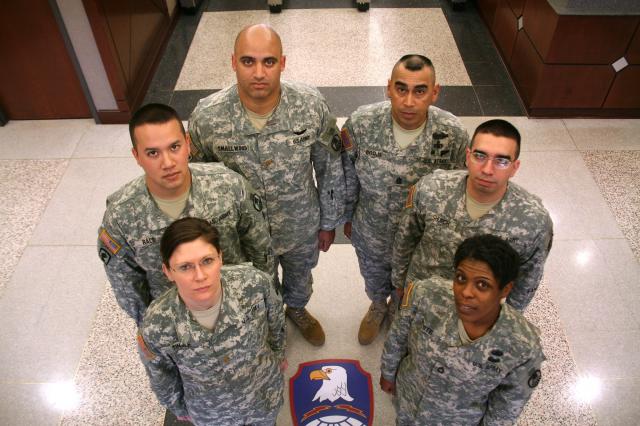BY ALINE REYNOLDS | Despite strides made by the U.S. Army to promote cultural diversity among its ranks, it still has far to go in properly training its troops and penalizing soldiers that mistreat their peers because of their ethnicity, according to individuals who testified at a City Council hearing on Fri., Jan. 27.
The hearing was organized to discuss and vote on Councilmember Margaret Chin’s resolution in honor of the late Private Danny Chen, who lived in the East Village. The resolution, which passed unanimously at the hearing, sailed through the full City Council in a 49-to-0 vote at its meeting on Wed., Feb. 1.
In light of Chen’s suicide last October, the resolution urges the U.S. Department of Defense to reform the military’s diversity training policies in order to thwart discrimination and harassment of all soldiers, including minorities.
“The recent and tragic circumstances surrounding [Chen’s] death highlight the need for greater initial scrutiny and periodic evaluations of those men and women who seek to serve and those who are already serving in the armed forces, to aid in the identification of those individuals who are more prone to behave in a reprehensible manner,” the resolution states.
While the Army prides itself on its antidiscrimination guidelines, nearly 2 percent of U.S. military suicides in 2010, and 5 percent of suicide attempts that year, were at least partly triggered by hazing, according to a report by Chin and fellow councilmembers.
Soldiers should be better educated about acceptable and unacceptable behaviors and about the legal and administrative consequences of discrimination, according to the report.
“At a minimum,” the report reads, “local training units must incorporate training on the antidiscrimination policy into the unit’s overall training, and [this training] must be conducted quarterly.”
Responding to the resolution, the Department of Defense stood firmly by the military’s current behavioral codes.
“All service members are expected to treat each other with dignity and respect, and each of the services has policies to reiterate and enforce this,” said Eileen Lainez, a department spokesperson. “Tailored training is included throughout the learning continuum; each service reviews course content regularly and makes revisions as appropriate.”
The Army is enhancing its cultural awareness training following the release of reports that identify loopholes in disciplinary action toward derelict soldiers, according to Herb Ruben, project director of the Veterans’ Mental Health Coalition of NYC, who testified at the Jan. 27 hearing.
“Commanders are now getting more troops into substance-abuse programs, are kicking more out of service for misconduct, and are barring others with alcohol and drug convictions from joining in the first place,” Ruben said.
These comments, however, didn’t pass muster with Chen’s family members and those of other soldiers who took their own lives. Judy Chu’s nephew, Lance Corporal Harry Lew, fatally shot himself last April after being bullied by his peers, Chu testified.
“The lack of diversity in military leadership and recent high-profile cases of racial discrimination and harassment at the lower levels of the services, raise serious concerns about whether the military is effectively providing the equal treatment and opportunity,” Chu said.
Congressmember Nydia Velazquez added that it’s crucial that the Army’s anti-hazing policies are transparent, since minorities, who are most often the victims, now comprise 35 percent of the Army’s active-duty personnel. The number of Asian-American soldiers alone has spiked by nearly 40 percent since 2002.
“We want to know whether the Army is tracking how many cases of hazing occur each year; when they last reviewed their hazing policies; and how anti-hazing training is emphasized in basic training,” Velazquez said.
OCA-NY (Organization of Chinese Americans), the chief advocacy group in the Chen case, has offered to work with the Army to create an interactive video as part of its diversity training and is requesting greater intervention at the recruitment stage to find out about prospective soldiers’ attitudes toward diversity. The organization is also demanding that commanding officers more successfully enforce a zero tolerance policy against hazing and that the officers be automatically punished if they fail to do so.
Responding to a series of questions OCA-NY fired off to Army officials at a meeting in mid-December, Army representative Larry Stubblefield asserted that commanders are indeed responsible for investigating allegations of mistreatment. Specifically, these officers undergo leadership training and must respond to “equal opportunity” — i.e. harassment — complaints within two weeks’ time, the spokesperson said.
“Commanders are held accountable for investigating reported complaints and responsible for ensuring an environment free from reprisal,” Stubblefield said.
Asked about the Army’s cultural awareness training, Stubblefield said it formally trains commanding officers and all other soldiers in its codes of conduct on a regular basis.
“It is important to recognize that the Army is comprised of 1.1 million people of all ethnicities, religions and backgrounds,” Stubblefield said. “If the Army were a city, it would be the tenth largest in the U.S.; and just as any city that size wrestles with a host of societal issues, so, too, does our Army.”





































